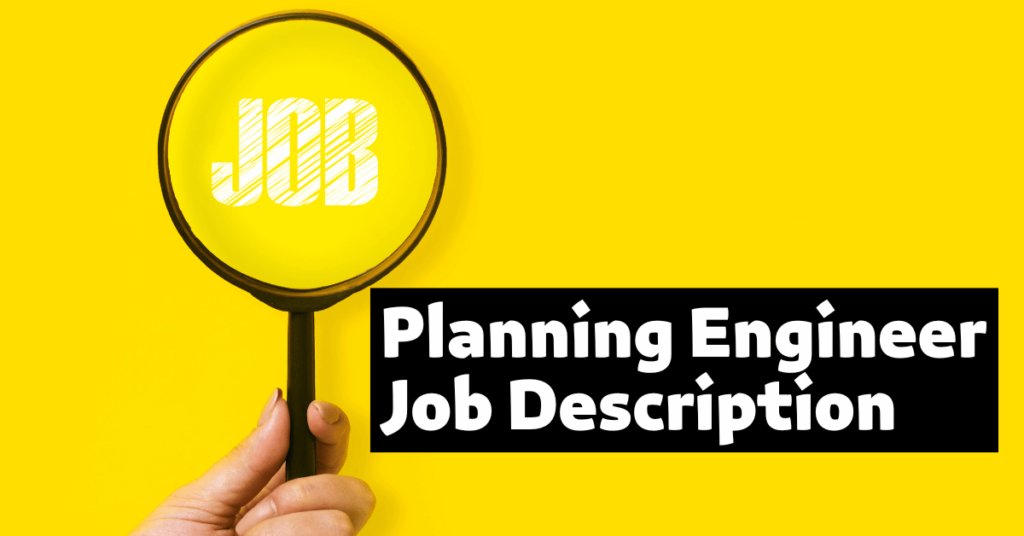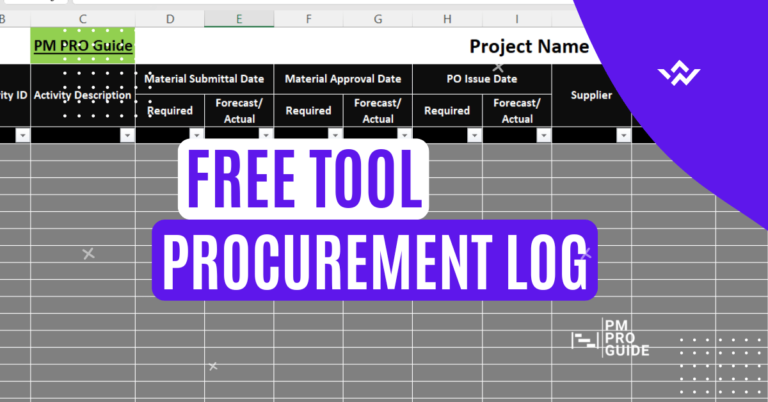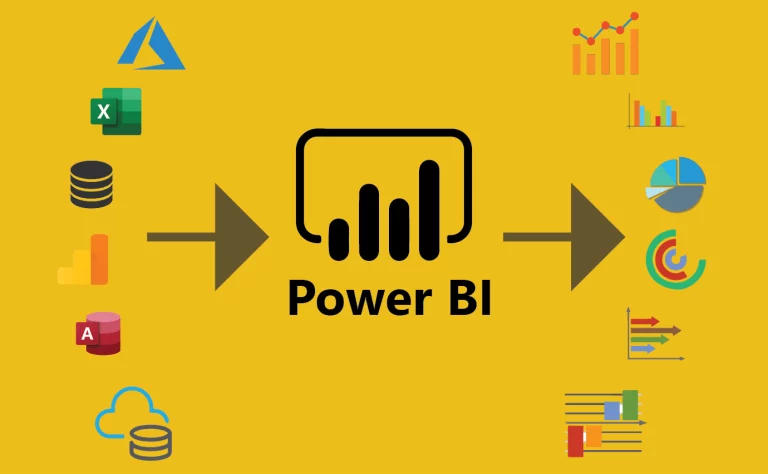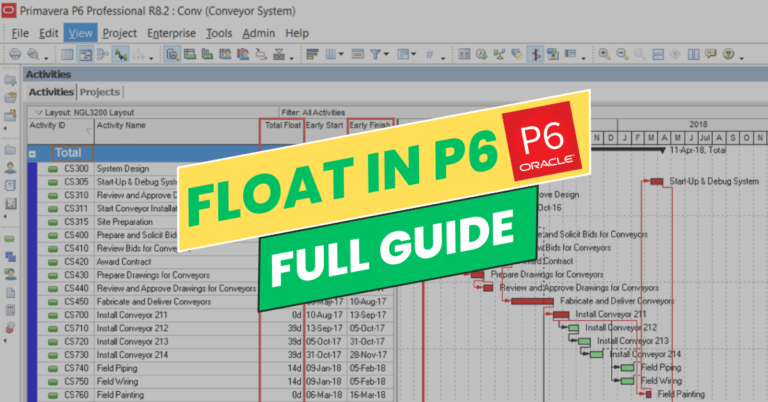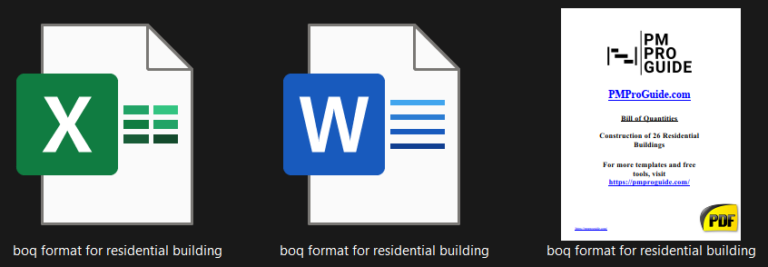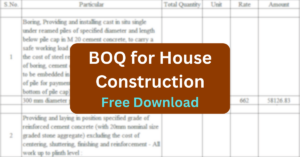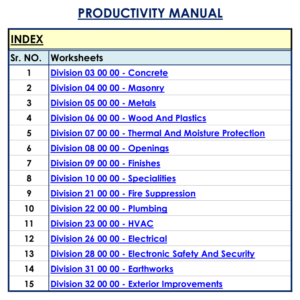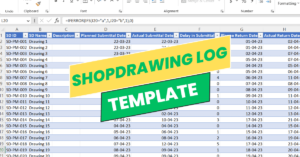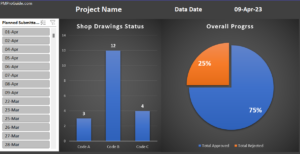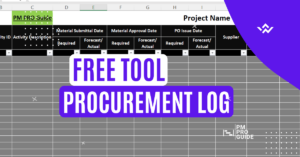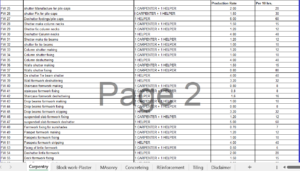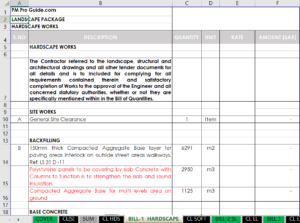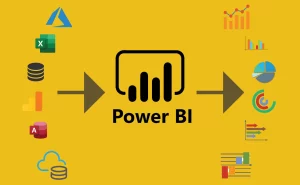Are you interested in becoming a planning engineer? Do you want to know what the job entails and what skills are needed to succeed in this field? In this article, we will provide you with a comprehensive overview of the planning engineer job description. We will cover the responsibilities, skills, and qualifications required to excel in this role.
Table of Contents
Introduction
As infrastructure and construction projects become more complex, the need for planning engineers becomes increasingly important. Planning engineers play a vital role in the successful completion of large-scale projects. They are responsible for ensuring that projects are completed on time, within budget, and meet the required quality standards. In this article, we will explore the role of a planning engineer and provide you with the necessary information to pursue a career in this field.
What is a Planning Engineer?
A planning engineer is responsible for developing, implementing, and maintaining project schedules. They work closely with project managers, architects, engineers, and contractors to ensure that projects are completed on time and within budget. Planning engineers use specialized software tools to create schedules, track progress, and identify potential delays or problems. They are also responsible for analyzing data, preparing reports, and making recommendations to improve project performance.
Responsibilities of a Planning Engineer
The responsibilities of a planning engineer may vary depending on the industry and the project. However, some common responsibilities include:
-
Developing project schedules
A planning engineer is responsible for creating and maintaining project schedules. They work closely with project managers to identify project milestones, critical paths, and dependencies. They use specialized software tools to create detailed schedules that outline the tasks, resources, and timeframes required to complete the project.
-
Tracking project progress
A planning engineer monitors project progress to ensure that the project is on track and within budget. They use project management software tools to track actual progress against the planned schedule. They also identify potential delays or problems and develop mitigation plans to keep the project on track.
-
Analyzing data and preparing reports
A planning engineer analyzes data related to project progress, costs, and resources. They prepare reports that summarize project performance and identify areas for improvement. They also make recommendations to project managers to improve project performance.
-
Coordinating with project stakeholders
A planning engineer works closely with project stakeholders such as architects, engineers, contractors, and project managers. They coordinate with these stakeholders to ensure that project goals are met, and project schedules are followed.
Skills Required for a Planning Engineer
To be a successful planning engineer, you will need to possess a combination of technical, interpersonal, and communication skills. Some of the essential skills required for a planning engineer include:
-
Technical skills
A planning engineer must have strong technical skills in project management software tools, scheduling techniques, and data analysis. They must be proficient in using tools such as Primavera P6, MS Project, and Excel.
-
Interpersonal skills
A planning engineer must have excellent interpersonal skills to work effectively with project stakeholders. They must be able to communicate effectively, build relationships, and manage conflicts.
-
Analytical skills
A planning engineer must have strong analytical skills to analyze data and identify potential problems. They must be able to use data to make informed decisions and develop mitigation plans.
-
Organizational skills
A planning engineer must have strong organizational skills to manage complex projects. They must be able to prioritize tasks, manage multiple deadlines, and coordinate with various project stakeholders.
-
Attention to detail
A planning engineer must have a keen eye for detail. They must be able to identify potential errors or issues in project schedules and take corrective action.
-
Time management skills
A planning engineer must have excellent time management skills to ensure that project schedules are met. They must be able to manage their time effectively, prioritize tasks, and meet deadlines.
Qualifications for a Planning Engineer
To become a planning engineer, you will typically need to have a bachelor’s degree in engineering or a related field. Some employers may require a master’s degree or relevant work experience. You will also need to have strong technical skills in project management software tools and scheduling techniques. Professional certifications such as the Project Management Professional (PMP) certification may also be required or preferred by some employers.
How to Become a Planning Engineer
To become a planning engineer, you should consider pursuing a degree in engineering or a related field. You should also gain experience in project management and scheduling techniques. Also, you can gain experience through internships, co-op programs, or entry-level positions in the industry. You should also consider obtaining professional certifications such as the Project Management Professional (PMP) certification.
Benefits of Being a Planning Engineer
As a planning engineer, you will have the opportunity to work on exciting and challenging projects. You will be responsible for ensuring that projects are completed on time, within budget, and to the required quality standards. You will also have the opportunity to work with a diverse group of project stakeholders and develop strong interpersonal and technical skills.
Challenges of Being a Planning Engineer
As a planning engineer, you may face challenges such as managing multiple deadlines, coordinating with various project stakeholders, and dealing with unexpected delays or problems. You will need to be able to work well under pressure and develop effective mitigation plans to keep projects on track.
Salary of a Planning Engineer
We already talked about this in many articles which you may consider checking for detailed salary reports for planning engineers in different countries. Here are some of them:
Planning Engineer Salary In Kuwait | 2023
Planning Engineer Salary In Egypt | 2023
Planning Engineer Salary In India | 2023
Planning Engineer Salary In Saudi Arabia | 2023
Planning Engineer Salary In UAE | 2023
Job Outlook for Planning Engineers
The job outlook for planning engineers is positive, with employment expected to grow in the coming years. As infrastructure and construction projects become more complex, the demand for planning engineers is likely to increase.
Bonus: Planning Engineer Job Description for HRs to use in job posts
Are you a skilled and detail-oriented planner? Do you have a passion for project management and a background in engineering or a related field? If so, we have an exciting opportunity for you to join our team as a Planning Engineer.
As a Planning Engineer, you will be responsible for developing, implementing, and maintaining project schedules, tracking project progress, and analyzing data to improve project performance. You will work closely with project stakeholders to ensure that projects are completed on time, within budget, and to the required quality standards.
The ideal candidate for this role will have a degree in engineering or a related field, along with strong technical and interpersonal skills. You should have experience in project management and scheduling techniques, as well as the ability to manage multiple deadlines and work effectively in a team environment.
In this role, you will have the opportunity to work on exciting and challenging projects, develop your skills and expertise, and play a critical role in the successful completion of large-scale projects. If you are a proactive problem-solver with a passion for planning and project management, we encourage you to apply for this position.
Key Responsibilities:
- Develop and maintain project schedules using project management software
- Monitor project progress and analyze data to identify potential issues or delays
- Work closely with project stakeholders to ensure that project deadlines are met
- Collaborate with project team members to ensure that project requirements are met
- Implement project management best practices and standards
- Prepare reports and presentations for project stakeholders
Requirements:
- Bachelor’s degree in engineering or a related field
- Strong technical and interpersonal skills
- Experience in project management and scheduling techniques
- Excellent organizational and time management skills
- Ability to manage multiple deadlines and work effectively in a team environment
- Proficiency in project management software such as Primavera or Microsoft Project
If you meet these qualifications and are excited about the opportunity to work as a Planning Engineer, we encourage you to apply today. We look forward to hearing from you!
Conclusion
In conclusion, a planning engineer plays a critical role in the successful completion of large-scale projects. They are responsible for developing, implementing, and maintaining project schedules, tracking project progress, and analyzing data to improve project performance. To become a planning engineer, you will need to have a combination of technical, interpersonal, and communication skills. You will also need to have a bachelor’s degree in engineering or a related field, as well as experience in project management and scheduling techniques.
FAQs
What is a planning engineer?
A planning engineer is responsible for developing, implementing, and maintaining project schedules for large-scale projects.
What skills are required to be a planning engineer?
To be a successful planning engineer, you will need to possess a combination of technical, interpersonal, and communication skills.
What qualifications are required to become a planning engineer?
To become a planning engineer, you will typically need to have a bachelor’s degree in engineering or a related field. Some employers may require a master’s degree or relevant work experience.
What is the job outlook for planning engineers?
The job outlook for planning engineers is positive, with employment expected to grow in the coming years.
What are some of the challenges of being a planning engineer?
As a planning engineer, you may face challenges such as managing multiple deadlines, coordinating with various project stakeholders, and dealing with unexpected delays or problems. However, these challenges can also provide opportunities for growth and development.
What are the benefits of being a planning engineer?
As a planning engineer, you will have the opportunity to work on exciting and challenging projects, develop strong interpersonal and technical skills, and play a critical role in the successful completion of large-scale projects.
Can I become a planning engineer with a degree in a field other than engineering?
While a degree in engineering or a related field is typically required, some employers may consider candidates with a degree in a related field and relevant work experience. However, obtaining a degree in engineering can provide you with the necessary technical knowledge and skills for the job.
What is the role of a planning engineer in project management?
The role of a planning engineer in project management is to develop, implement, and maintain project schedules, track project progress, and analyze data to improve project performance. They work closely with project stakeholders to ensure that projects are completed on time, within budget, and to the required quality standards.
How can I improve my skills as a planning engineer?
To improve your skills as a planning engineer, you can consider pursuing professional certifications such as the Project Management Professional (PMP) certification, gaining experience in project management and scheduling techniques, and seeking feedback from mentors and colleagues. You can also stay up-to-date with industry trends and best practices by attending conferences and training sessions.
